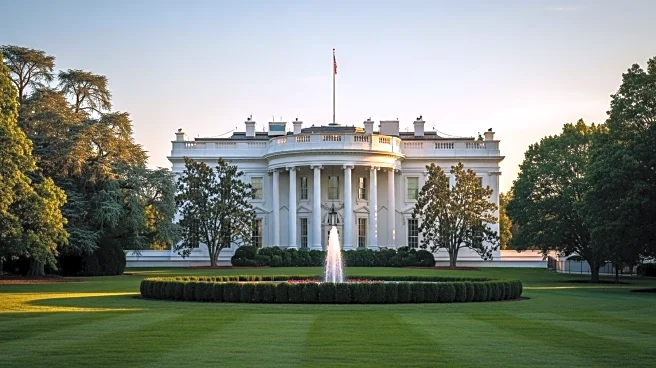What's Happening?
President Trump has returned to the United States following a diplomatic tour in the Middle East, where he claimed significant victories. Meanwhile, concerns are rising domestically over the increasingly aggressive tactics employed by ICE. Reports suggest that ICE's methods have become more violent, sparking fear among immigrant communities. This development comes as tensions remain high in regions like Israel and Gaza, where the aftermath of prolonged conflict continues to affect daily life. The juxtaposition of international diplomacy and domestic unrest highlights the complex challenges facing the current administration.
Why It's Important?
The return of President Trump to the U.S. after his Middle East tour is significant as it shifts focus back to domestic issues, particularly immigration enforcement. The reported increase in ICE's aggressive tactics could have profound implications for immigrant communities, potentially leading to heightened fear and instability. This situation may also influence public opinion and policy discussions regarding immigration reform and enforcement practices. The administration's handling of these issues will be closely watched by political analysts and civil rights organizations, as it could impact upcoming elections and legislative agendas.
What's Next?
In response to the concerns over ICE's tactics, advocacy groups may intensify their efforts to push for policy changes and greater oversight of immigration enforcement. Political leaders could face pressure to address these issues, potentially leading to debates and legislative proposals aimed at reforming ICE practices. The administration may also need to balance its diplomatic achievements abroad with addressing domestic unrest, requiring strategic communication and policy adjustments. The situation in Israel and Gaza may continue to influence U.S. foreign policy decisions, adding another layer of complexity to the administration's agenda.
Beyond the Headlines
The growing concerns over ICE's tactics highlight broader issues of human rights and civil liberties in the U.S. The ethical implications of aggressive immigration enforcement raise questions about the balance between national security and individual rights. This situation may also reflect deeper societal divisions regarding immigration policy, prompting discussions on the cultural and legal dimensions of enforcement practices. The administration's approach to these challenges could have long-term effects on the nation's social fabric and international reputation.












